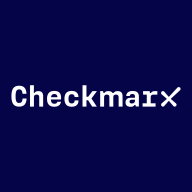

Find out what your peers are saying about Black Duck, Snyk, Veracode and others in Software Composition Analysis (SCA).
| Product | Market Share (%) |
|---|---|
| Checkmarx Software Composition Analysis | 3.4% |
| Black Duck SCA | 11.9% |
| Snyk | 10.5% |
| Other | 74.2% |
| Product | Market Share (%) |
|---|---|
| OpenText Static Application Security Testing | 6.4% |
| Veracode | 13.6% |
| Checkmarx One | 10.5% |
| Other | 69.5% |

| Company Size | Count |
|---|---|
| Small Business | 7 |
| Large Enterprise | 8 |
| Company Size | Count |
|---|---|
| Small Business | 4 |
| Midsize Enterprise | 3 |
| Large Enterprise | 11 |
Checkmarx Software Composition Analysis (SCA) helps organizations manage the risks associated with open source and third-party components in their software applications. While leveraging open source libraries and third-party dependencies is common practice, it can also introduce security vulnerabilities and license risks.
Checkmarx SCA offers a multifaceted approach to managing these risks by:
Automatically scanning project repositories, build configurations, and manifests to create a comprehensive inventory of all components, including version information and associated licenses.
Performing vulnerability assessments on each component, including identifying and prioritizing actual exploitable or reachable vulnerabilities.
Protecting organizations from software supply chain attacks involving malicious packages, such as the XZ Utils backdoor.
Identifying licenses associated and providing insights into license obligations, restrictions, and potential conflicts.
Integrating seamlessly into existing development workflows and CI/CD pipelines.
Providing actionable remediation guidance to help organizations address identified vulnerabilities and compliance issues effectively.
OpenText Static Application Security Testing empowers teams with efficient vulnerability detection and streamlined secure coding practices, offering comprehensive language support and seamless integration with development tools.
OpenText Static Application Security Testing enhances software security during development by accurately identifying vulnerabilities with minimal false positives. It integrates seamlessly with IDEs and CI/CD pipelines, making it highly efficient for early detection of security issues. Users benefit from its easy setup, clear documentation, and centralized portal for managing security findings. Despite facing challenges like high costs and complex configurations for certain languages, its role in facilitating compliance and streamlining secure coding processes is indispensable. Improvements are needed in areas such as outdated design, language support, and integration capabilities to meet evolving user expectations.
What features does OpenText Static Application Security Testing offer?Organizations across diverse sectors implement OpenText Static Application Security Testing primarily to secure applications during development phases. Its integration with tools like GitLab, Jenkins, and Azure DevOps ensures a robust security pipeline. By combining with Sonatype Nexus, secure code, and library management is achieved effectively.
We monitor all Software Composition Analysis (SCA) reviews to prevent fraudulent reviews and keep review quality high. We do not post reviews by company employees or direct competitors. We validate each review for authenticity via cross-reference with LinkedIn, and personal follow-up with the reviewer when necessary.